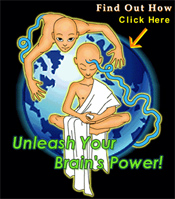Consume, Consume, Consume With The False Promise Of Happiness!
![]() Andrew Martin, Collective-Evolution
Andrew Martin, Collective-Evolution
Waking Times
Victor Lebow an economist, retail analyst and author, wrote a very pertinent account of modern consumerism in his 1955 paper, “Price Competition in 1955,” which was published in the Spring issue of the “Journal of Retailing.”
“Our enormously productive economy demands that we make consumption our way of life, that we convert the buying and use of goods into rituals, that we seek our spiritual satisfactions, our ego satisfactions, in consumption. The measure of social status, of social acceptance, of prestige, is now to be found in our consumptive patterns. The very meaning and significance of our lives today expressed in consumptive terms. The greater the pressures upon the individual to conform to safe and accepted social standards, the more does he tend to express his aspirations and his individuality in terms of what he wears, drives, eats, his home, his car, his pattern of food serving, his hobbies.
These commodities and services must be offered to the consumer with a special urgency. We require not only “forced draft” consumption, but “expensive” consumption as well. We need things consumed, burned up, worn out, replaced and discarded at an ever increasing pace. We need to have people eat, drink, dress, ride, live, with ever more complicated and, therefore, constantly more expensive consumption. The home power tools and the whole “do-it-yourself” movement are excellent examples of “expensive” consumption.”
Consumerism Is Not Sustainable
We have let ourselves to be led down the path of consumption, we have been manipulated into a society of ‘battery hen humans’ where governments, marketers, corporations and interest groups have been feeding us a steady diet of consumerism, laced with deceit, false hopes and non-sustainability. It all started after the Second World War when economies and much of the Western population were in a state of stability and there were abundant energy resources in the form of coal and oil. What better way to control the masses to promote growth and prosperity than to condition consumers, voters and citizens to consume, consume, consume, everything else is irrelevant.
 People talk about ‘the economy’ as if it were a living being. Interest groups such as the financial services sector, government, corporations and politicians discuss confidence, growth, investment, demand, spending, stimulus and consumption as a means to satisfying and appeasing the manic depressive economy. Slowly we are starting to see fragments of change. We have let ourselves become attached to something that offers little real evidence of being able to truly make us happy in the long term. In Buddhism, attachment is one of the key hindrances that causes suffering among humans. The Buddha taught that attachment generates craving, wanting and insecurity. Attachment is the wanting to hold onto and keep a permanent state and not be separated from a thing or person. The general principle behind non-attachment is to cultivate a mind of detachment. Once we do this we can then move towards a mind of oneness which involves compassion, an understanding of impermanence and seeing experiences for what they are.
People talk about ‘the economy’ as if it were a living being. Interest groups such as the financial services sector, government, corporations and politicians discuss confidence, growth, investment, demand, spending, stimulus and consumption as a means to satisfying and appeasing the manic depressive economy. Slowly we are starting to see fragments of change. We have let ourselves become attached to something that offers little real evidence of being able to truly make us happy in the long term. In Buddhism, attachment is one of the key hindrances that causes suffering among humans. The Buddha taught that attachment generates craving, wanting and insecurity. Attachment is the wanting to hold onto and keep a permanent state and not be separated from a thing or person. The general principle behind non-attachment is to cultivate a mind of detachment. Once we do this we can then move towards a mind of oneness which involves compassion, an understanding of impermanence and seeing experiences for what they are.
We’re Attached To Physical Objects
Not only have humans become attached to physical objects or things, but also to relationships, ideas and opinions. We anchor or associate happiness, success and fulfillment with these external objects in the hope that we will find lasting happiness. So what do we do? Like the mouse on the treadmill we hope we will eventually get to where we want to be. We are always trying to achieve, in a never ending cycle of wanting and having, thinking this will lead us to lasting happiness. The current Western economic system with the mantra of growth and prosperity has let us be seduced into a pattern of wanting and external gratification. Most of us have been herded onto the plains of consumerism with the promise this will bring us closer to fulfillment. While on the forest fringes, we see a small group of enlightened beings that realize happiness and contentment comes only from within and cannot be bought, sold, acquired or accumulated.
Non-attachment gives us the freedom, space and time to contemplate the true meaning of life. Attachment distracts us from reality. It influences how we perceive and react to our immediate world. A world of excess leads to a roller coaster of highs and lows. This in turn motivates us to seek out more of those high moments of pleasure. We enter into a hedonistic world of want-fulfillment which creates further wanting in an attempt to bring lasting happiness.
About the Author
Article by Andrew Martin editor of onenesspublishing and author of One ~ A Survival Guide for the Future…
~~ Help Waking Times to raise the vibration by sharing this article with the buttons below…
